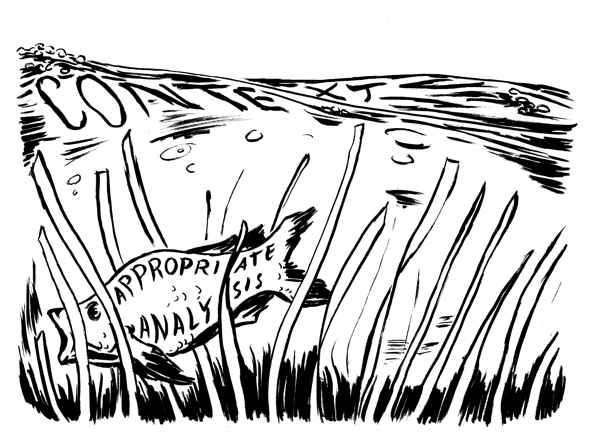Coding/Rating Open-Ended Responses
Tip: Make the coding/rating procedures as anonymous as possible. Have participants put their names and any other identifying information at the end of their responses or on a separate page so coders/raters don't see it.
Rationale: Knowing the gender, race/ethnicity, and even the first name of the person whose work is being rated has been shown to impact ratings of:
- open ended responses;
- research work;
- faculty evaluations;
- resumes; and
- course work.1
Tip: Have more than one coder/rater code the responses and check for inter-coder/rater reliability. If the reliability is not high enough, have coders/raters discuss the rationale behind their ratings and recode.
Tip: Unless the coding is being based on grounded theory, develop and test the coding/rating protocol in advance of doing the data analysis.
Rationale: While some question whether it is possible to generate reliable codings/ratings of open-ended responses, others feel that inter-coder/rater reliability is a useful concept in settings characterized by applied, multidisciplinary, or team based work. Establishing high inter-coder/rater reliability is an attempt to reduce error and bias.4
1 Anderson-Clark, T., Green, R. & Henley, T. (2008). The relationship between first names and teacher expectations for achievement motivation. Journal of Language & Social Psychology, 27(1), 94-99.
Correll, S. J., & Benard, S. (2006). Biased estimators? Comparing status and statistical theories of gender discrimination. In S. R. Thye and E. J. Lawler (eds.), Advances in group processes(vol 23, pp. 89-116). New York, NY: Elsevier.
Pellegrini, A. D. (2011). “In the eye of the beholder”: Sex bias in observations and ratings of students' aggression. Educational Researcher, 40(6), 281-286. doi:10.3102/0013189X11421983
2 Lev-Ari, S., & Keysar, B. (2010). Why don't we believe non-native speakers? The influence of accent on credibility. Journal of Experimental Social Psychology, 46(6), 1093-1096. doi:10.1016/j.jesp.2010.05.025
3 Moss-Racusin, C. A., Dovidio, J. F, Brescoll, V. L., Graham, M. J., & Handselsman, J. (2012). Science faculty's subtle gender biases favor male students. PNAS Early Edition. 1-6.
Steinpreis, R. E., Anders, K. A., & Ritzke, D. (1999). The impact of gender on the review of curricula vitae of job applicants and tenure candidates: A national empirical study. Sex Roles, 41(7/8), 509-528. doi:10.1023/A:1018839203698
4 Hruschka, D.J., Schwartz, D., St. John, D.C., Picone-Decaro, E, Jenikns, R. A. & Carey, J.W. (2004). Field Methods, 16, 3, 307-331.


